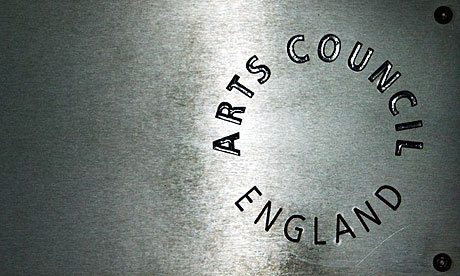
Today we will hear our fate. As the head of one of hundreds of organisations waiting to hear whether we receive Arts Council funding, I have to admit these are nervous moments. My small organisation, New Deal of the Mind, was set up two years ago to help young unemployed people find jobs in the arts and the creative industries. We happen to think this is worth a small amount of government funding. My attitude to the Arts Council will hugely depend on whether or not it is enlightened enough to see the worth of what we do.
And this, I’m afraid, is the Arts Council’s biggest problem. The system of clientelism which it operates means that its servant organisations (many of which are fully dependent on it for their survival) are not in a position to question its driving philosophy or suggest ideas for reform.
Many within the organisation felt aggrieved at the conclusions of the Culture, Media and Sport Select Committee report this week, which decided the Arts Council had, at times, been wasteful with public money. But this was a cross-party committee which had reached a consensus. The Arts Council needs to listen.
The organisation, which has been generous to New Deal of the Mind during our start-up period, remains too sensitive to criticism. Not so long ago we were asked to write a risk assessment of what the media might say if the Arts Council did not do more to create work for young people trying to break into the sector. We suggested, as carefully as we could, that it might be said that the overpaid fat cat quangocrats of the arts elite had chosen to pass over Britain’s future artists in favour of vainglorious “grands projets”. One hurt and angry senior official called me and to whether I thought she was an “overpaid fat cat quangocrat.” She hasn’t spoken to me since.
As it happens, the individual involved was hugely dynamic, impeccably professional and deeply committed to the future of the arts in this country. She was simply not used to criticism from client organisations.
This situation has to change. Let’s take a small example. It is running joke within the arts that it is impossible to get hold of anyone from the Arts Council on a Friday afternoon. The miracles of flexitime mean that a large number of employees of the organisation simply choose to clock off early at the end of the week. Arts organisations small and large raise a knowing eyebrow, share their frustration at this petty irritation. But no one says a word.
Meanwhile, the whole arts world has been caught flatfooted by the cuts. We now all need to look at new models of funding and the Arts Council needs to take a lead. I am agnostic about this. Grant-based funding has always been a part of the British model and it has been, in many cases, hugely successful in nurturing creativity. Ed Vaizey is the first to acknowledge the way the subsidised sector feeds and enriches the more commercial end of the creative industries.
But in these difficult times, arts organisations need to make new arguments. During a recent visit to Israel I visited The Lab, an arts centre housed in an old railway shed in Jerusalem. Rather than receiving state subsidy, The Lab is funded by a foundation set up by Jerusalem Venture Partners (JVP), a high-tech investment company set up by an entrepreneur, Erel Margolit, who happened to have a passion for the arts. There is a virtuous circle created by the relationship between the high-tech businesses, many of which are themselves in the creative industries, and the arts centre, which is experimental, innovative and embedded in the community via projects involving 2,500 children from 16 schools across Jerusalem.
The Arts Council could learn a lot from the Lab if only it would listen. So could the government.
I realise that if we are disappointed today, much of what I have said will seem like sour grapes. Either way, I hope we can help develop a more constructive conversation about arts and creativity
in Britain, where criticism and new ideas are seen as a useful contribution to the debate.
UPDATE: Shortly after this was posted Martin Bright was informed that his organisation had not received Arts Council funding.






Comments